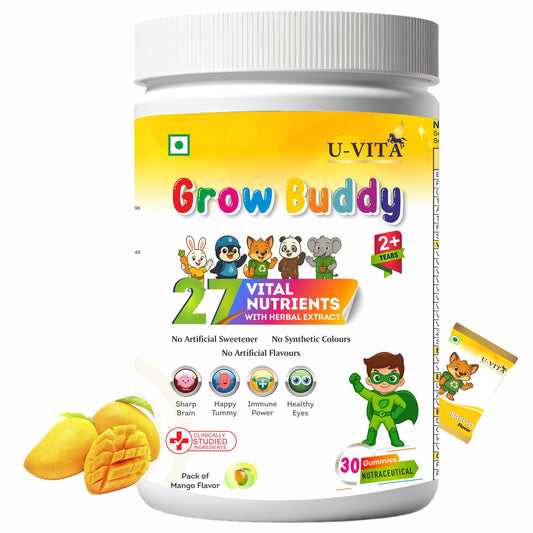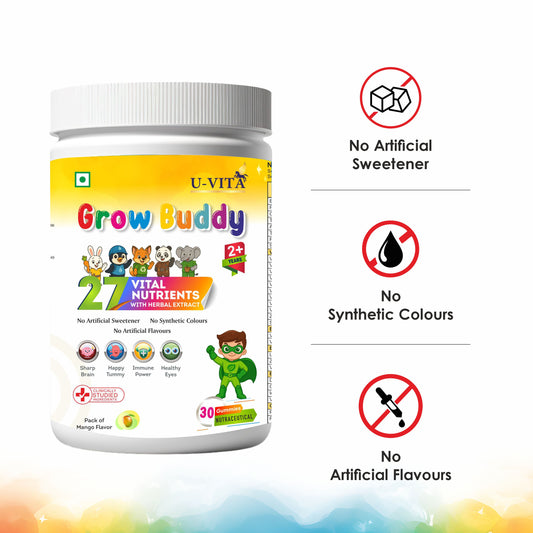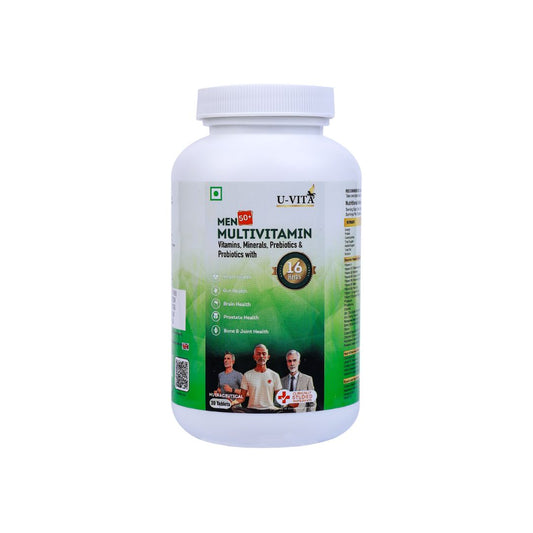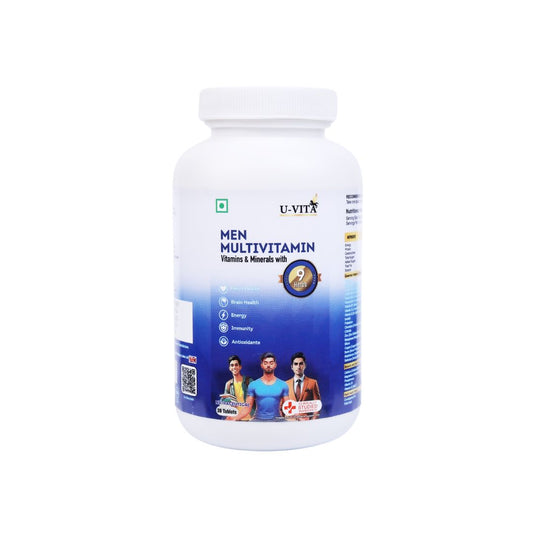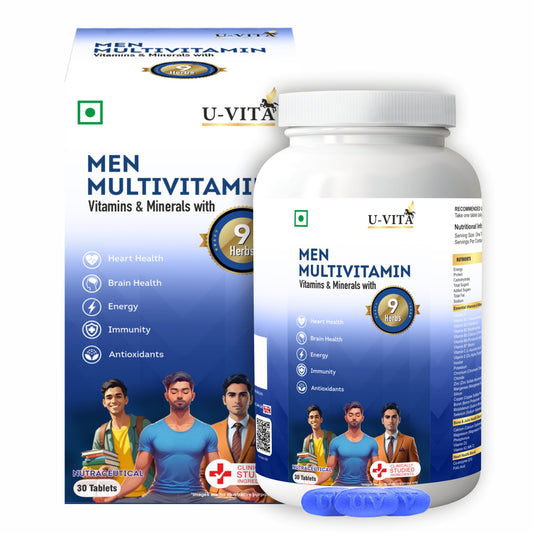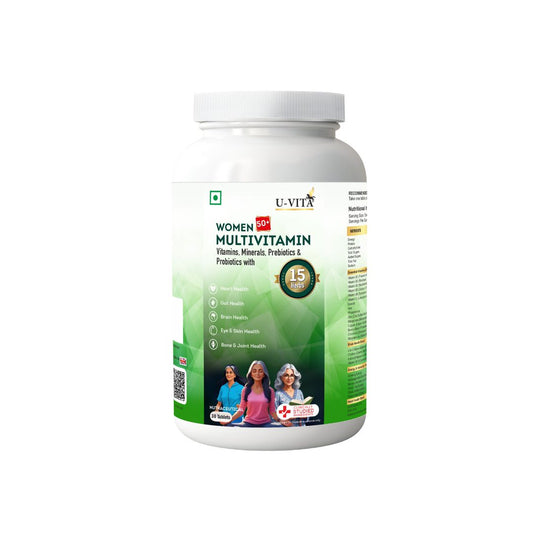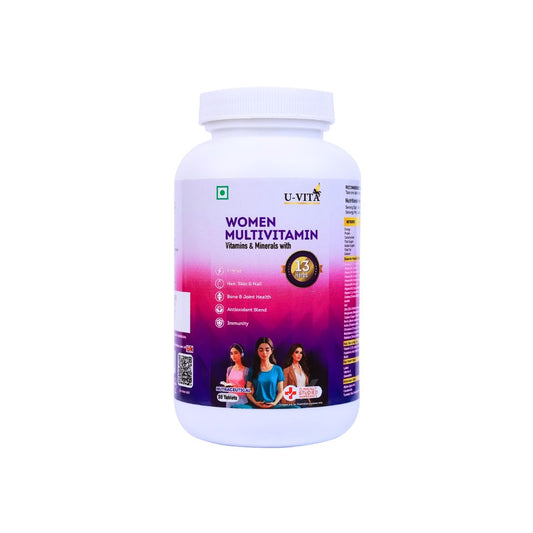Healthy Eating Habits: Smart Nutrition Tips for Growing Kids
It can be challenging to keep children healthy, content, and energetic in today's hectic world. Between busy school schedules, extracurricular activities, screen time, and food preferences, ensuring that your child receives the right nutrition can be really tough. However, smart nutrition is the support of your child’s growth, immunity, learning ability, and overall development, and it plays a key role in building healthy eating habits from an early age.
Here’s what every modern parent should know about building a healthy body and active mind for their child’s future.
The Growing Importance of Nutrition
The nutritional demands of children, especially during school-age years and adolescence, are higher than at any other stage of life. Rapid growth spurts, hormonal changes, and thinking development require a consistent supply of essential nutrients. Unfortunately, with rising consumption of processed foods, increased screen time, and reduced physical activity, many kids are falling short of their daily nutrient needs.
Studies by the ICMR-NIN (Indian Council of Medical Research, National Institute of Nutrition) show signs of a serious problem of micronutrient deficiencies among children, including low levels of iron, vitamin D, zinc, and calcium, all of which are critical for growth and immunity. Addressing these deficiencies through balanced diets and cultivating good eating habits is vital for their future.
The Building Blocks of Smart Nutrition
1. Macronutrients
Proteins: Essential for building muscles, bones, hormones, and enzymes. Include milk, eggs, lean meat, pulses, soy, paneer, and nuts in daily meals.
Carbohydrates: Choose complex carbs such as whole grains, oats, millets, and brown rice for sustained energy rather than sugar-loaded cereals and processed snacks.
Healthy Fats: Good fats are vital for brain development. Add nuts, seeds, ghee, olive oil, and omega-3 sources like fish or algal DHA supplements.
2. Micronutrients
Vitamins and minerals play an important role in immunity, metabolism, and mental development:
-
Calcium & Vitamin D: Strengthen bones and teeth.
-
Iron & Vitamin B12: Support oxygen transport and prevent fatigue.
-
Zinc & Vitamin C: Boost immunity and wound healing.
-
Vitamin A & E: Promote vision and skin health.
A lack of these nutrients can lead to delayed growth, poor concentration, frequent infections, and early fatigue, making nutrition and wellness a top priority for parents.
3. The Role of Functional Foods & Herbs
Modern nutrition science is increasingly embracing functional foods, natural ingredients that go beyond basic nutrition to promote overall wellness. Herbs like Ashwagandha, Brahmi, Shankhpushpi, and Amla are being recognized for their role in:
-
Boosting focus and memory.
-
Balancing hormones during puberty.
-
Strengthening immunity.
-
Supporting emotional resilience during school stress.
Incorporating these into daily routines alongside tips for healthy eating can help parents create lasting good eating habits for their kids.
Challenges Modern Parents Face
Despite the best intentions, many parents struggle with their kids’ eating habits:
-
Picky Eating: Refusal to try new or healthy foods.
-
Peer Pressure & Advertising: Kids prefer fast food due to social influence or catchy ads.
-
Time Barrier: Busy schedules lead to reliance on quick, packaged foods.
-
Lack of Awareness: Many parents underestimate nutrient gaps in everyday diets.
Awareness and adopting healthy eating habits gradually can address these common challenges effectively.
Practical Tips for Smart Nutrition
Here’s how you can transform your child’s diet without battles or stress:
1. Balance Every Plate
Use the "½-¼-¼" rule:
-
Half the plate with vegetables and fruits.
-
A quarter with protein.
-
A quarter with whole grains.
2. Make Snacks Nutrient-Rich
Swap empty-calorie snacks (chips, sugary biscuits) for:
-
Roasted nuts or trail mix.
-
Fruit with nut butter.
-
Greek yogurt with berries.
-
Homemade smoothies with seeds.
3. Involve Kids in Food Choices
Engage your child in grocery shopping or simple cooking tasks. When kids feel involved, they’re more likely to try healthy foods and adopt good eating habits naturally.
4. Include Growth-Boosting Supplements
Sometimes, even balanced diets can’t meet fast-growing kids’ needs. A kid-friendly multivitamin or protein supplement fortified with vitamins, minerals, probiotics, and DHA can bridge nutritional gaps and support nutrition and wellness.
5. Limit Sugar and Junk
Teach moderation, not restriction. Allow occasional treats but focus on whole, home-cooked meals most of the time while reinforcing healthy eating habits through family routines.
Smart Nutrition for Specific Needs
-
For Focus and Academic Performance: Include omega-3 fatty acids (DHA), Brahmi, and magnesium-rich foods.
-
For Puberty and Hormonal Balance: Ensure adequate protein, zinc, iron, and adaptogenic herbs like Shatavari or Ashwagandha.
-
For Immunity: Vitamin C (Amla, citrus fruits), zinc (pumpkin seeds), and probiotics (curd/yogurt) are essential for nutrition and wellness.
The Role of Hydration and Sleep
Nutrition is not just about food. Water and adequate sleep are equally important. Encourage your child to:
-
Drink at least 6-8 glasses of water daily.
-
Sleep 8-10 hours to support growth hormone release and brain recovery.
When Should Parents Seek Professional Help?
If your child shows signs like poor growth, chronic fatigue, frequent illnesses, or low appetite, consult a nutritionist. Timely intervention supports nutrition and wellness and prevents deficiencies.
Conclusion: Raising Healthy, Happy Kids
Smart nutrition isn’t about forcing kids to eat boring foods—it’s about making it fun, tasty, and sustainable. By combining balanced meals, tips for healthy eating, and modern science-backed supplements, parents can ensure their child grows stronger, sharper, and more resilient.
The health of your child is an investment. Start early, stay consistent, and focus on nutrition and wellness. With the right approach and good eating habits, strong nutrition today builds a brighter tomorrow.

